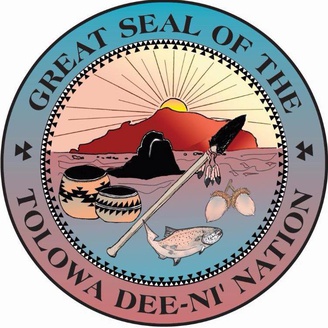Jessica Cejnar Andrews / Friday, Aug. 12, 2022 @ 4:24 p.m. / Infrastructure, Tribal Affairs
Tolowa Dee-ni' Nation Receives Federal Grant for U.S. 101 Safety Project in Smith River

The Tolowa Dee-ni’ Nation will use about $1.6 million in federal grant dollars to improve pedestrian and cyclist safety on U.S. 101 through Smith River.
The tribe received a Rebuilding American Infrastructure with Sustainability and Equity (RAISE) grant, U.S. senators, Dianne Feinstein and Alex Padilla, announced Wednesday. Tolowa Dee-ni’ Nation will use its grant to complete the environmental review and design for its Connected Communities Project.
The tribe aims to have a finalized blueprint of its project by next spring, spokeswoman Emily Reed told the Wild Rivers Outpost.
“In the meantime, they’re going to be hosting some community planning meetings to collect input from tribal citizens and residents,” Reed said.
The Tolowa Dee-ni’ Nation was one of eight recipients in California to receive a total of more than $119 million in RAISE grant dollars from the U.S. Department of Transportation, according to a news release from Feinstein and Padilla’s office. The grant amount was increased after senators approved the Bipartisan Infrastructure Law last year, according to the release.
Most grants went toward projects in Southern and Central California, including the California High-Speed Rail Authority’s Merced Extension Design Project and a rail project at the Port of Los Angeles and Long Beach.
The Tolowa Dee-ni’ Nation’s Connected Communities Project is an expansion on a 2013 project that included walking and bicycle safety improvements along the highway, according to Reed. That project added signs reminding people to slow down, colorized shoulders along U.S. 101 and turn pockets and lighting at major intersections in Smith River such as N. Fred Haight Drive.
The Tolowa Dee-ni' Nation completed that project with a $2.5 million federal TIGER Grant. It was the only tribal entity to receive that federal grant.
The Connected Communities Project would focus on the area near the Tolowa Dee-ni’ Nation’s new headquarters and Lucky 7 Casino, Reed said. This is an area that’s seen a lot of pedestrian-related collisions and the tribe is considering whether to implement a roundabout to try to get cars to slow down along with elevated bridges to increase safety, she said.
Taking steps to try to reduce the speed limit through that area from 55 mph to a mandatory 45 mph is a topic tribal citizens and representatives have also brought up, Reed said.
Currently motorists are urged to slow down to 45 mph near the casino and further south near Downtown Smith River, but the reduced speed limit isn’t mandatory.
“We simply think 55 mph is too fast,” Reed said, adding that in January, the Tolowa Dee-ni’ Nation consolidated all of its tribal services at its new headquarters on the highway at Mouth of Smith River Road. “We see a lot of our residents that walk and they are going to be crossing the street to come here for services. We would like to see that speed limit lowered for sure.”
With Smith River lacking a super market, many residents walk to the Lucky 7 Casino Fuel Mart, All Star Liquor and Dollar General for drinks and snacks, Reed pointed out. The Tolowa Dee-ni’ Nation hopes to increase safety through that corridor, she said.
A Crescent City and Elk Valley project to complete the reconstruction of Front Street to U.S. 101 did not make the list of award recipients. In its fourth attempt to obtain a RAISE Grant, the city and Elk Valley Rancheria submitted an application for $11.5 million earlier this year.
City Manager Eric Wier said Friday that he had not heard officially whether the city’s RAISE Grant application was rejected. However, he said, he was excited for the Tolowa Dee-ni’ Nation.
“That’s a great community project,” he told the Outpost.
Crescent City is currently using roughly $2.2 million in Measure S, American Rescue Plan Act and general fund dollars to reconstruct Front Street from G-I streets. The Del Norte Local Transportation Commission also contributed $400,000 toward the project.
The city may also get $750,000 in federal Community Project Funding dollars to extend the Front Street project to Play Street, but that money — included in the first appropriations bill of the 2022-23 fiscal year — is not yet assured, according to Wier.
CLICK TO MANAGE